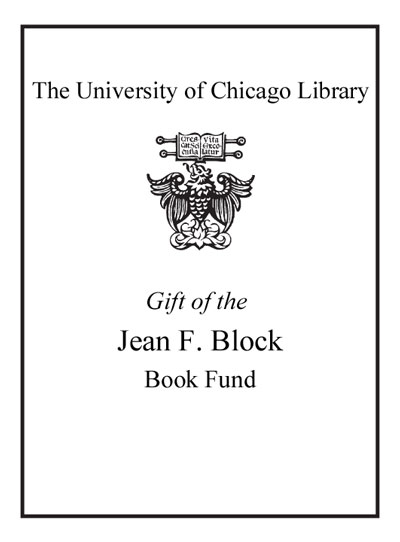The descent map from automorphic representations of GL(n) to classical groups /
Saved in:
| Author / Creator: | Ginzburg, D. (David) |
|---|---|
| Imprint: | Singapore ; Hackensack, NJ : World Scientific Pub., c2011. |
| Description: | ix, 339 p. : ill. ; 26 cm. |
| Language: | English |
| Subject: | |
| Format: | Print Book |
| URL for this record: | http://pi.lib.uchicago.edu/1001/cat/bib/8513946 |
Table of Contents:
- Preface
- 1. Introduction
- 1.1. Overview
- 1.2. Formulas for the Weil representation
- 1.3. The case, where H is unitary and the place v splits in E
- 2. On Certain Residual Representations
- 2.1. The groups
- 2.2. The Eisenstein series to be considered
- 2.3. L-groups and representations related to P ¿
- 2.4. The residue representation
- 2.5. The case of a maximal parabolic subgroup (r = 1)
- 2.6. A preliminary lemma on Eisenstein series on GL n
- 2.7. Constant terms of E (h, f ¿,s )
- 2.8. Description of W{{M ¿ , D ¿ )
- 2.9. Continuation of the proof of Theorem 2.1
- 3. Coefficients of Gelfand-Graev Type, of Fourier-Jacobi Type, and Descent
- 3.1. Gelfand-Graev coefficients
- 3.2. Fourier-Jacobi coefficients
- 3.3. Nilpotent orbits
- 3.4. Global integrals representing L-functions I
- 3.5. Global integrals representing L-functions II
- 3.6. Definition of the descent
- 3.7. Definition of Jacquet modules corresponding to Gelfand-Graev characters
- 3.8. Definition of Jacquet modules corresponding to Fourier-Jacobi characters
- 4. Some double coset decompositions
- 4.1. The space Qj\h(V)k/Qz
- 4.2. A set of representatives for Qj\h(V)k/Qe
- 4.3. Stabilizers
- 4.4. The set Q\h(Wm, l)k/Ll, wo
- 5. Jacquet modules of parabolic inductions: Gelfand-Graev characters
- 5.1. The case where K is a field
- 5.2. The case K = k ⊕ k
- 6. Jacquet modules of parabolic inductions: Fourier-Jacobi characters
- 6.1. The case where K is a field
- 6.2. The case K = k ⊕ k
- 7. The tower property
- 7.1. A general lemma on "exchanging roots"
- 7.2. A formula for constant terms of Gelfand-Graev coefficients
- 7.3. Global Gelfand-Graev models for cuspidal representations
- 7.4. The general case: H is neither split nor quasi-split
- 7.5. Global Gelfand-Graev models for the residual representations E r
- 7.6. A formula for constant terms of Fourier-Jacobi coefficients
- 7.7. Global Fourier-Jacobi models for cuspidal representations
- 7.8. Global Fourier-Jacobi models for the residual representations E r
- 8. Non-vanishing of the descent I
- 8.1. The Fourier coefficient corresponding to the partition(m, m,m' _ 2m)
- 8.2. Conjugation of Sm by the element ±_m
- 8.3. Exchanging the roots y1,2 and x1,1 (dimEV = 2m , m > 2)
- 8.4. First induction step: exchanging the roots yi, j and Xj-iti, for 1
- 8.5. First induction step: odd orthogonal groups
- 8.6. Second induction step: exchanging the roots yi, j and xj-i, i, for i + j [3*P\ (dmiEV = 2m)
- 8.7. Completion of the proof of Theorems 8.1, 8.2; dimEV = 2m
- 8.8. Completion of the proof of Theorem 8.3
- 8.9. Second induction step: odd orthogonal groups
- 8.10. Completion of the proof of Theorems 8.1, 8.2; h(V) odd orthogonal
- 9. Non-vanishing of the descent II
- 9.1. The case HA = Sp4n+2(A)
- 9.2. The case H = SO4n+1
- 9.3. Whittaker coefficients of the descent corresponding to Gelfand Graev coefficients: the unipotent group and its character; h{{V) $$$ S04n+1
- 9.4. Conjugation by the element fjm
- 9.5. Exchanging roots: h(V) = S04N, U4n
- 9.6. Nonvanishing of the Whittaker coefficient of the descent corresponding to Gelfand-Graev coefficients: h(V) = S04n, U4n
- 9.7. Nonvanishing of the Whittaker coefficient of the descent corresponding to Gelfand-Graev coefficients: h(V) = U4n+2, So4n+3
- 9.8. The Whittaker coefficient of the descent corresponding to Fourier-Jacobi coefficients: Ha ^ Sp4n+2(A)
- 9.9. The nonvanishing of the Whittaker coefficient of the descent corresponding to Fourier-Jacobi coefficients: HA=Sp4n(A)Sp4n(A), U4n(A)
- 9.10. Nonvanishing of the Whittaker coefficient of the descent corresponding to Fourier-Jacobi coefficients: h(V) = U4n+2
- 10. Global genericity of the descent and global integrals
- 10.1. Statement of the theorems
- 10.2. Proof of Theorem 10.3
- 10.3. Proof of Theorem 10.4
- 10.4. A family of dual global integrals I
- 10.5. A family of dual global integrals II
- 10.6. L-functions
- 11. Langlands (weak) functorial lift and descent
- 11.1. The cuspidal part of the weak lift
- 11.2. The image of the weak lift
- 11.3. On generalized endoscopy
- 11.4. Base change
- 11.5. Automorphic induction
- Bibliography
- Index

